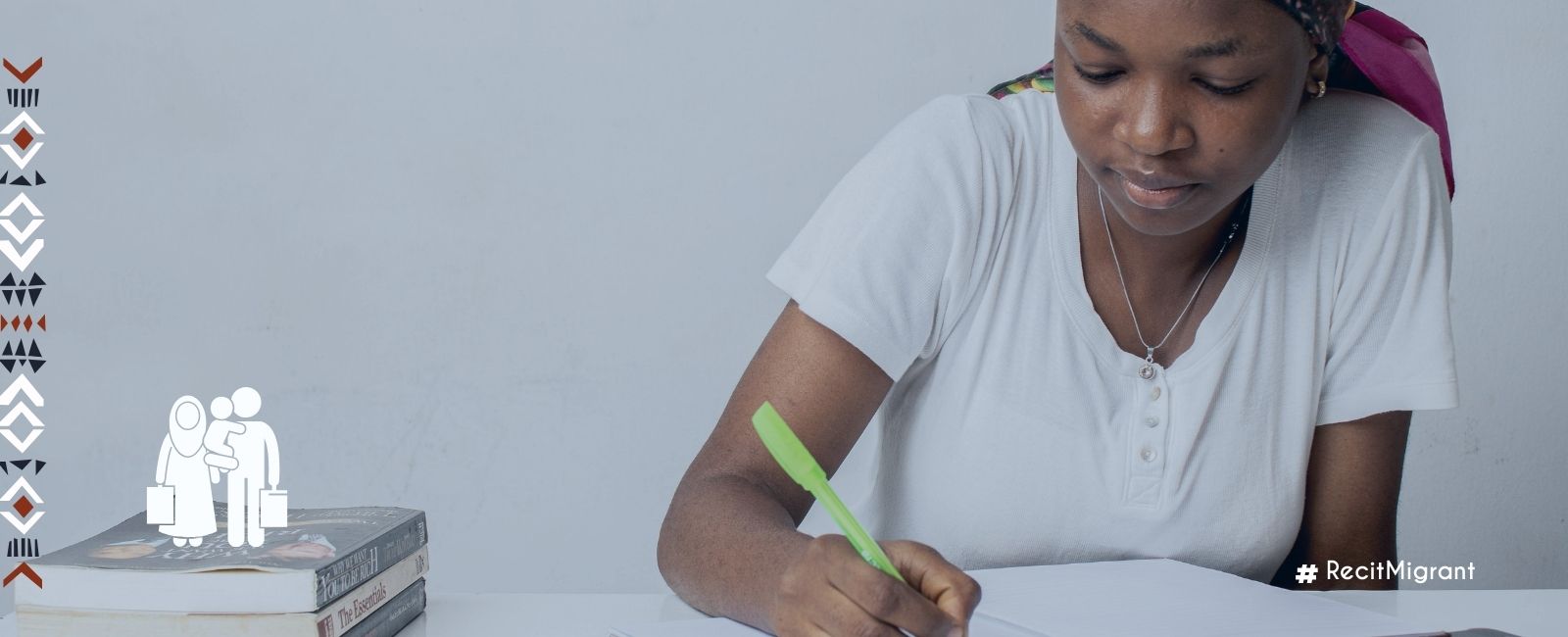

In many Togolese and African families, one of the parents, often the mother or father, is forced to migrate to another country so as to be able to provide for the family. This search for a better life transforms the family structure and creates invisible wounds marked by absence and longing. Between hope and suffering, these families try to maintain a bond, despite the distance and challenges. Adjoa and Kevin share their testimonies about this poignant reality with Dialogue Migration.
Adjoa Sika, a migrant mother’s courage and sacrifice
At 38 years old, Adjoa Sika embodies the courage of mothers who are willing to do anything to ensure their children have a better future. After the loss of her husband, she had no choice but to leave Togo for Mali, in the hope of stable employment. “I left my three children with my mother. Every video call reminds me of how much they’re growing without me. My eldest daughter blames me for my absence. My youngest son doesn’t even understand why I’m so far away. I work hard to send them money, but sometimes I wonder if I made the right choice.”
Adjoa is not alone. Like her, thousands of African mothers migrateface isolation, discrimination and the burden of separation. A study by the Dialogue magazine highlights the specific challenges these women face: between workplace exploitation and emotional loneliness, their dual status as migrants and mothers makes them particularly vulnerable.
Children of silence: growing up without parents
While parents suffer from the distance, children left behind also bear the consequences. Kevin, 17 years old, knows this all too well. His father left for Italy when he was only 10 years old. “At first, he called often and sent us gifts. But over time, the calls became less frequent. I had to grow up fast. After school, I do odd jobs to help my mother pay the bills. Sometimes, I envy my friends who have both parents at home. I miss my father, but I don’t blame him. He did what was necessary for us,” he said.
Children of migrants face multiple challenges such as emotional distress, academic difficulties and a lack of parental guidance. A study conducted in China on internal migration highlights that the absence of parents, especially the mother, exacerbates the disadvantages of the most vulnerable children. However, remittances and strong family support can sometimes alleviate these effects.
The cost of a two-edged sacrifice
Notwithstanding the remittances and hopes for better days, the absence of parents through migration creates deep rifts in family relationships. When distance grows physically, it often deepens emotionally as well. Even though some reunite with their families after years, the bonds would have changed, sometimes irreparably.
While initiatives are emerging to better support these separated families, the question remains: is the price of sacrifice always worth it? For Adjoa and Kevin, the answer fluctuates between love and resilience, between longing and necessity.
While waiting for the day of return, they cling to the invisible thread that connects them: the hope of a reunion, a reconstructed home, each with a story to be rewritten.
Recently Published
Subscribe to our newsletter!
Quick Links


